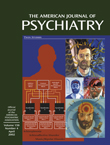The true cause, or causes, of violent behavior and other behavioral and cognitive disorders is an area rife with contentiousness, nebulousness, and intellectual disharmony. In this powerfully absorbing book, neurologist Jonathan Pincus strives assiduously to penetrate the thick haze enshrouding violence by forthrightly postulating a theory purporting to explicate its etiology. According to his theory, childhood abuse, including physical and/or sexual abuse, causes the violent urge, and neurological deficits and psychiatric diseases affecting the brain, particularly paranoia, untether restraints on the urge.
Of these elements, childhood abuse is the most important one in Pincus’s view, as well as the one most amenable to correction. Thought of metaphorically, childhood abuse is a cask that needs only a spark (in the form of neurological disturbance and/or paranoid thinking) to ignite it into a great conflagration unleashing forces of violent criminality.
Pincus is no stranger to the subject of violent crime. A neurology professor and inveterate writer, during the past 25 years he has neurologically examined about 150 murderers; slightly lurid details of some of the crimes perpetrated by these persons are recounted in the book. Pincus is an unusually good writer, possessed, as well, of great erudition. Indeed, his intellectual rigor, passion, and energy are practically palpable to the engrossed reader.
Pincus’s riveting treatise on violent crime is configured into 12 chapters; a detail-laden, clinically directed appendix (pertaining to neurological diagnostic tools); and copious, annotated research notes, which may delight the research-minded reader. Pincus takes on the formidable task of developing a theory to explain violent crime in doughty, thoughtful, meticulous fashion. In search of the correct answer to the enigmatic question of why some people act in a criminally violent manner, Pincus capably and carefully guides the reader along a fascinating, hard-to-follow path, strewn with tantalizing bits and pieces of information proffered by an expansive array of subjects. These include abuse-drenched living environments, brain damage, paranoia, aberrant behavior and social pathology, genes, frontal lobotomy, attention deficit hyperactivity disorder, mania, toxic encephalopathy, and dissociative identity disorder.
Although definitive answers may be lacking, it cannot be gainsaid that this thought-provoking book illumines a profundity of invaluable information and insights germane to the causation of violent criminal behavior. A plethora of interesting questions are generated, which one hopes may stimulate robust discussion and examination. For example, Why do people kill? Does behavior in the particular form of violence originate in the brain? What is the proper definitional meaning of intensely value-laden terms, such as “violence” and “evil”? If violent criminals are, in fact, brain-damaged, why are they even considered criminals? How should the criminal justice system demarcate legal responsibility, if any, for legally proscribed behavior by brain-damaged persons? How should medical clinicians most appropriately treat brain-damaged persons exhibiting violent behavior? If “evilness” is the result of brain damage, is anyone really responsible?
The foregoing questions bring together, although probably uneasily, two quite disparate worlds: one with criminal-justice-based roots of case law and statutes; the other immersed in medical science and focused on the pathogenesis, diagnosis, and treatment of illnesses involving behavior and the brain. Some may question whether any one theory of violent criminal behavior can be cobbled together that fully respects and reconciles the traditions and mainstream thinking of these respective realms.
In my opinion, although Pincus’s theory of violent criminal behavior may not necessarily resonate fully with other possible views and paradigms regarding violent behavior and other behavioral and cognitive disorders, he surely deserves hearty felicitations for painstakingly sculpting a theory about violence that should force the reasonably informed, discerning reader to think hard. Indeed, for the student of violent crime, including mental health and criminal justice professionals, this very fine book provides a wealth of insight, knowledge, and wisdom concerning violent behavior.

